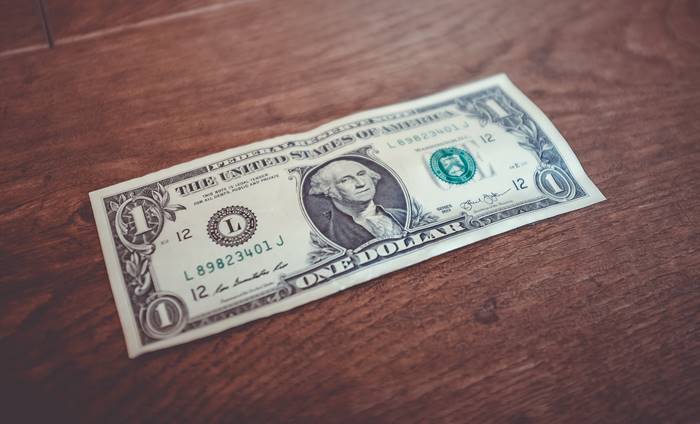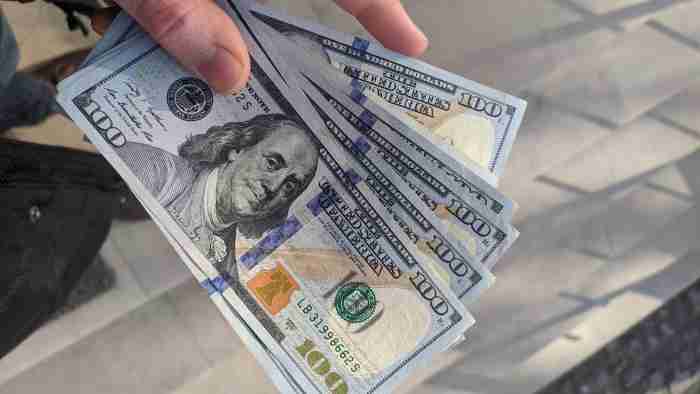Finpanda - Loans and financial services in one place
Search
Find the best offer for you
FAQ

From making a purchase and buying property to setting up a new business, many loan services are available in the USA to cover them. There are private as well as government-backed firms to provide funding to borrowers in their time of need. USA residents are offered different types of loans. Each loan type has its own rules and features, which are discussed below in detail.
-
Quick loans
Quick loans or instant loans are short-term loans which can be taken in case of emergencies. They come with very high-interest rates. APR for short-term instant loans can vary from 100% to 900%. APR is the annual percentage rate that gives you information on what you are paying and includes the annual cost of a loan and all types of fees.
-
Personal loans
Personal loans are the type of short-term loans that borrowers get from banks, credit unions or private lenders. They are repaid in monthly installments but are unsecured as they are not backed by collaterals such as a car or other assets. The loan terms mostly range from 24 months to 60 months.
Personal loan costs are varied lender to lender and often depend on your credit score. With excellent credit, some lenders don't charge any fees, and you may have access to the full range of loan amounts that a lender offers. You only have to pay back the principal, i.e. the amount you borrowed and interest. Low-interest charges will make you pay back less over the life of the loan.
Lenders use the debt-to-income ratio of the consumer to determine if he meets their borrowing criteria. Some lenders may charge a loan origination fee to process a new loan application and to verify the new borrower. Lenders charging origination fees may have low-interest rates. U.S. banks and some private loan providers offer as low as 8.24% APR in personal loans.
-
Online loans
Online loans are the easiest and quick option for borrowing money, as it eliminates the need to visit a local branch. Usually, the annual percentage rate offered by online personal loans ranges between 6% and 36%.
Online personal loans offer more benefits than traditional lenders. The main advantage of this loan type is that people face fewer credit-check requirements, which enables them to become pre-qualified for rates in no-time. Furthermore, people enjoy the personalized rates and the convenient online application process.
You can add a co-signer to the loan application to get a lower rate or raise your eligibility or get a higher loan amount. Most online lenders offer loan amounts ranging from $1,000 to $100,000.
Loan providers that accept borrowers with high credit scores of above 689 may also provide services like rate-beat guarantees or the option to skip a monthly payment.
-
Student loans
Student loans are the educational debts taken by undergraduate and postgraduate students. Borrowers who never completed a degree are most likely to be behind on their payments. As of 2022, about 45 million Americans have benefitted from student debt. There are government as well as private firms that provide loans.
The U.S. government facilitates students through grants for need-based tuition, veterans' benefits, student loan programs, and research. Student loans are subsidized by the government, or sometimes students take help from different government programs for debt forgiveness. The Biden administration's program forgives up to $20,000 in student debt for Pell grant recipients. Whereas, non–Pell grant recipients making less than $125,000 are forgiven up to $10,000.
Before choosing private student loans focus on eligibility requirements if they match your requirements, cost and interest rate, and additional features (e.g. lower interest rate) being offered. Private student loans offer a discount if you opt for autopay. Private lenders may also offer a deferment period or grace period after you graduate, in which you don't need to make full payment until the grace period ends.
However, there are some drawbacks to private student loans. With a private student loan, you'll accrue interest when you take the loan. Several cancellation programs aren't available with private student loans.
-
Payday loans
Payday loans are short-term, low-balance and high-interest loans. They are also called Cash advances. They are intended to help the borrower in getting some cash to hold them over the last days of the month and are meant to be repaid with the next salary. Many borrowers run into trouble after getting such kinds of loans.
Consumer Financial Protection Bureau (CFPB) offers payday loan protection that prevents lenders from collecting payments from borrowers' bank accounts in Ways that add up excessive fees and requires lenders to issue certain notices before collecting payments. The average payday loan in the USA is $375.
Not every U.S. state allows payday loans. Payday loans are illegal in States including Arizona, North Carolina, and New Jersey.
-
Small business loans
A small business loan is a type of loan business owners get to cover the expenses associated with operation and growth. Small business loans can be taken from traditional lenders and online lenders. Some online lenders are registered with US Small Business Administration (SBA). Small business loans guaranteed by SBA offer low-interest rates, limited fees and extended repayment terms of up to 25 years. Some SBA loans also provide education and support in helping set up a business and running it.
-
Home equity loan
It is a type of secured loan based on the equity of the borrower's home. It is paid in installments. Equity is the difference between the borrower's home's value and what he owes on any outstanding debts against the property. The loan amount relies on several factors like income, credit history and the market value of the borrower's home. They have fixed interest rates in most cases. Mostly, the borrower can borrow up to 80% of his home value.
-
Debt Consolidation loan
These loans have a low-interest rate and are taken in order to pay for pre-existing debts. Debt consolidation loans typically have an interest rate of 6% to 36. Debt consolidation pays all your pre-existing debts, and now you need to make a single payment on a new loan every month. This debt consolidation loan also streamlines payments and makes it easier to manage finances.
-
Installment loans
Installment loans are any type of loan that is meant to be paid with regularly scheduled payments or installments. They can be unsecured or secured by collateral. Unsecured installment loans are given on the basis of borrower credit score, income and assets.
-
Motorcycle loans
These loans help in financing a bike if you can't afford it. These loans are often secured with a motorcycle as collateral and require a down payment. There are also unsecured loans that take into account the credit of the borrower. Online lenders offer rates under the category of unsecured personal loans from 6% to 36%. However, the rates on secured loans are relatively lower. Federal credit unions take interest rates at 18%.
-
Credit cards
Credit cards are the most commonly used way in which a person buys something and borrows the money from a lender with the intention to repay the lender later. Many credit companies give rewards for your spending. Rewards include flat rates and bonuses.
Blog

Is a payday loan installment or revolving?
Before taking a loan, Understanding the type of loan suitable for your needs will allow you to make a more informed...
Read more
Construction loan
Would you like to build your own home, but your budget doesn't seem to cover it? Constructing a residential propert...
Read more



















